I was never a fan of social engineering until I became involved in the interfaith world and realized that pluralism is not intuitive. It takes conscious effort. In other words, it takes some engineering. There are few organic social conditions that propel people from different faith traditions to meaningfully engage with one another. Most of the time we have to orchestrate the context, and sometimes even the content of our discussions, in order to break through the artificial walls that have traditionally kept us apart. We do this because we know that we are stronger together.
My introduction to interfaith work as a power tool of social justice came through my involvement with a Muslim Jewish women’s organization widely known as the Sisterhood of Salaam Shalom. The Sisterhood fosters personal relationships between faith groups with the hope of building compassion and understanding.
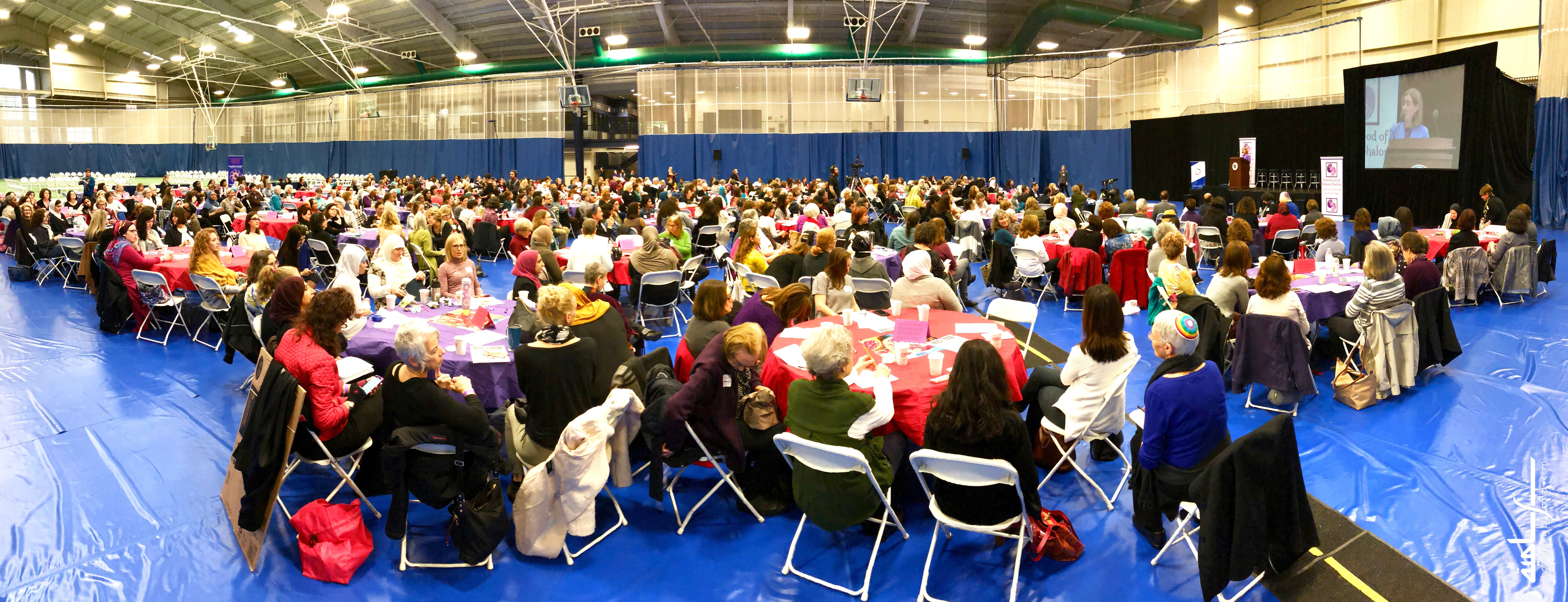
Image by Samia El-Moslimany
Under the stewardship of founding member and executive director Sheryl Olitzky, the Sisterhood of Salaam Shalom has grown exponentially since it launched its first national conference at Temple University in 2014. During that first conference, there were no more than one hundred participants and this modest number included all our presenters. Fast forward to 2017 and our annual conference, held last weekend at Drew university, sold out with over 600 participants. This year’s theme of, Rising Up Against Hate, brought together women from over 26 states to learn from leading Muslim and Jewish scholars and activists.
Notable religious scholars like former president of the Islamic Society of North America Dr. Ingrid Matson was one of four keynotes for the event. Matson spoke about her heroes Hajar and Saffiyah and said: “Love doesn’t mean the absence of conflict, it means that despite that conflict, we will work together.” A surprise appearance by Senator Corey Booker had the audience up on their feet. “America is not a nation of tolerance but a nation of love,” said Booker.
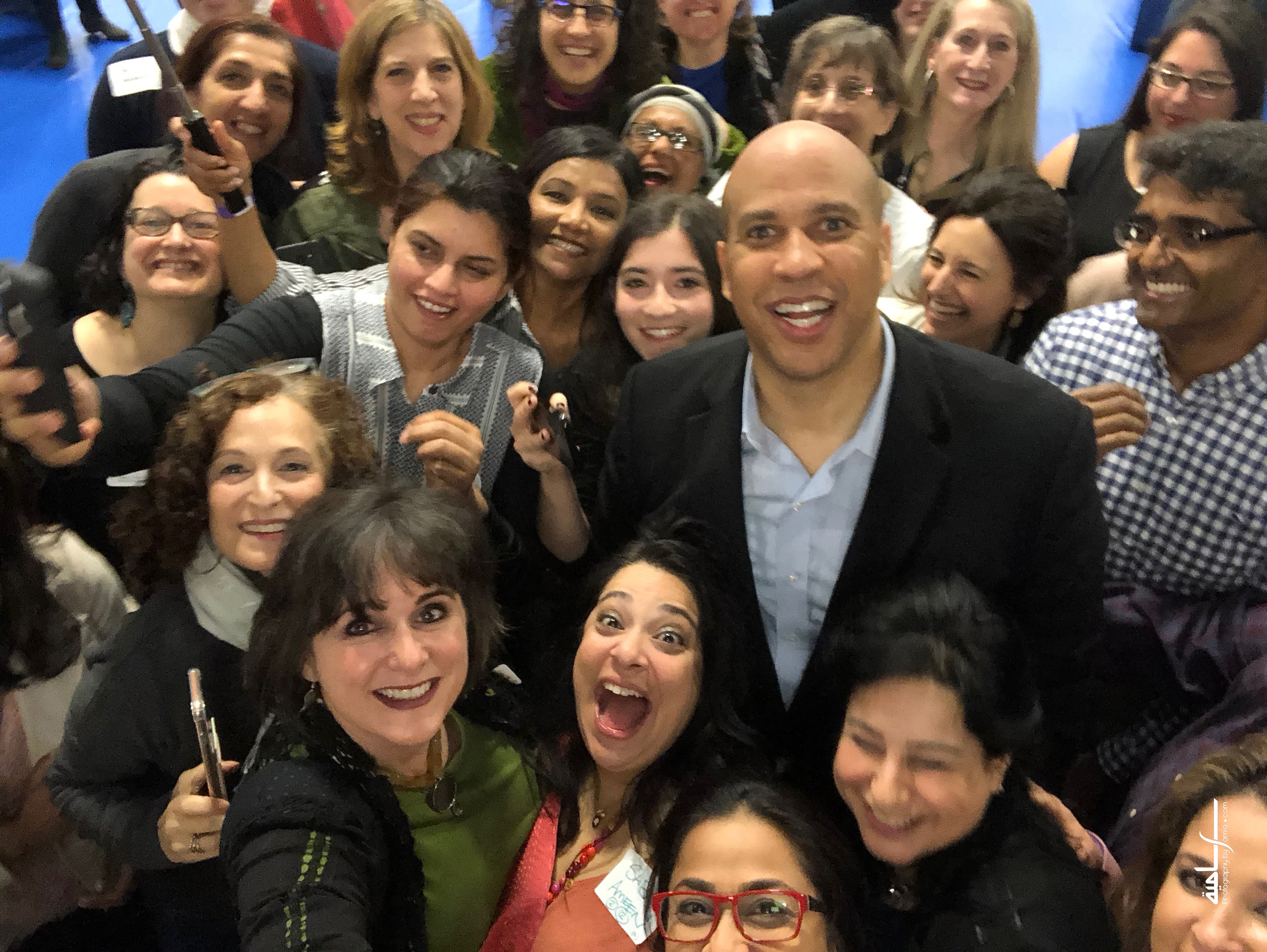
Image by Samia El-Moslimany
The day-long event culminated in a panel discussion moderated by American comedian and host of SiriusXM Progress “The Dean Obeidallah Show,” the only daily national radio show hosted by a Muslim American. Traditionally facetious in his approach, Dean took on a more serious tone, asking questions about what sets a women’s dialogue group apart from co-ed groups, and how does the presence of men change the dynamics of peace work.
Panelists included author of the recently released “Adnan’s Story,” Rabia Chaudry, founder of “Ms.” Magazine, Letty Cottin Pograbin, and founding President of the Women’s Initiative for Self-Empowerment (WISE), Rana Abdelhamid.
Samira Zaman, an active member of the Kansas City chapter of the Sisterhood says: “With each passing year and conference, I have returned with renewed hope, witnessing the transforming force of the ‘movement’ called the Sisterhood of Salaam Shalom”
Now back in her home state of Kansas, Samira and her Jewish chapter member Laura Gilman are busy coordinating, along with the hundreds of other chapter members across the country, a national social service day which will fittingly take place on Christmas day. This one-day event, known as Sadaqa/Tzedaka day is one of several national initiatives put out annually by the Sisterhood.
Unprecedented Growth
Results of a national research study on Sisterhood members reveal that eight out of 10 members are now more dedicated to speaking out against hate and protecting the stranger than prior to being a part of the Sisterhood. And the vast majority- more than nine out of 10- are proud to tell others about SOSS, with the average member telling more than 20 others about their SOSS experience. With over 150 chapters currently in formation and over a thousand on a growing waiting list, the Sisterhood has become a national movement.
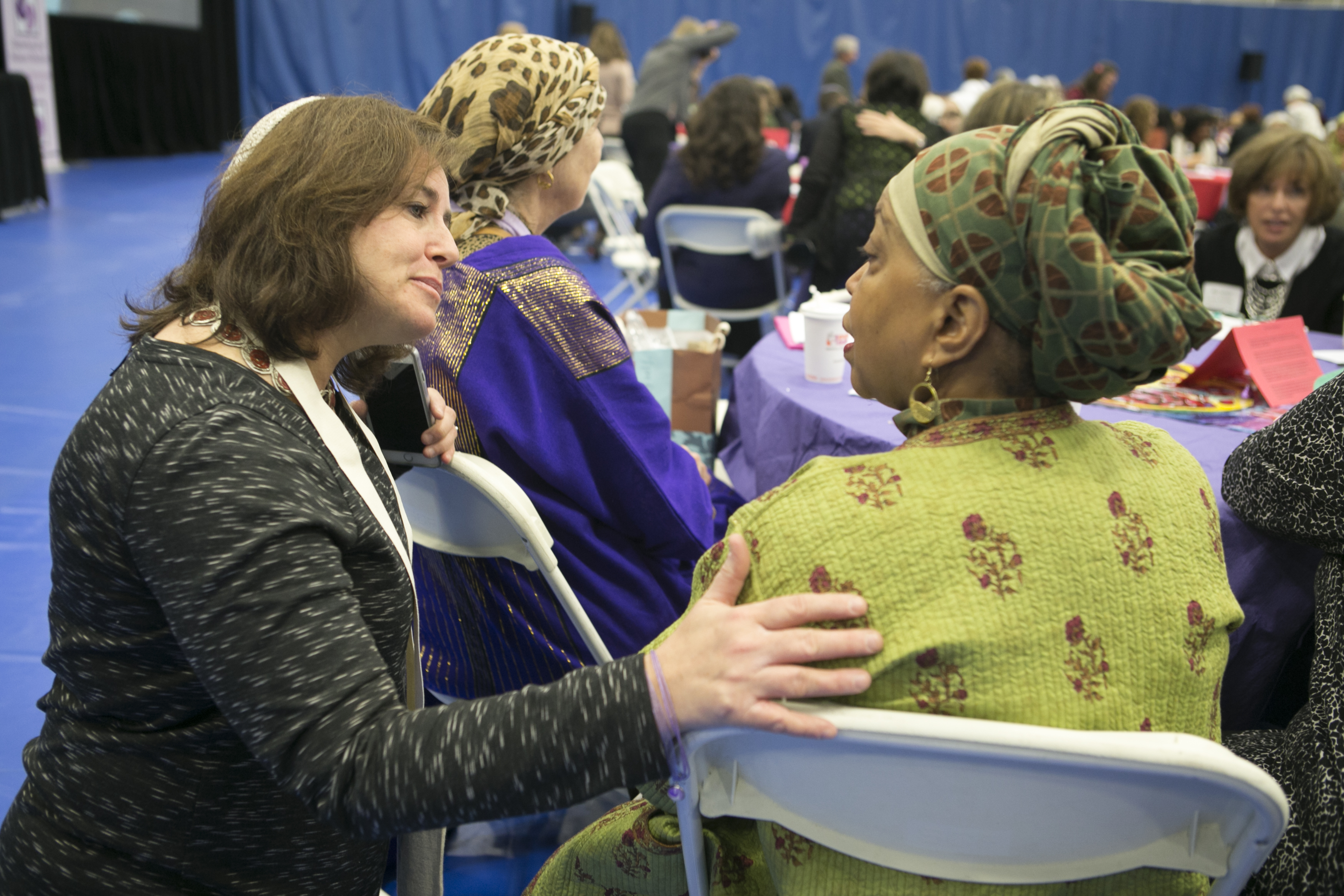
Image by Karen Mancinelli/Drew University
When asked what was her hope for the future of the organization, Olitzky said: “To no longer be needed. It is real easy to hate someone you do not know. But when you know someone, it is harder and when you really care about them, it is almost impossible to hate. The SOSS makes it impossible by creating a movement of women who genuinely care about one another.”
It sounds counterintuitive, but by witnessing how others honor their traditions, we tend to become more attached to our own. Being part of a faith community, even when it is not your own, can strengthen one’s religious identity. The sociological term for this is called holy envy. I prefer to call it holy love.
Inas Younis was born in Mosul, Iraq and migrated to the United States in 1982. An independent journalist and commentator, Inas’ opinion pieces, book reviews, and personal essays have been published on various websites and magazines. Inas serves on the Board of the Sisterhood of Salaam Shalom.
Title Image Credit: Karen Mancinelli/Drew University

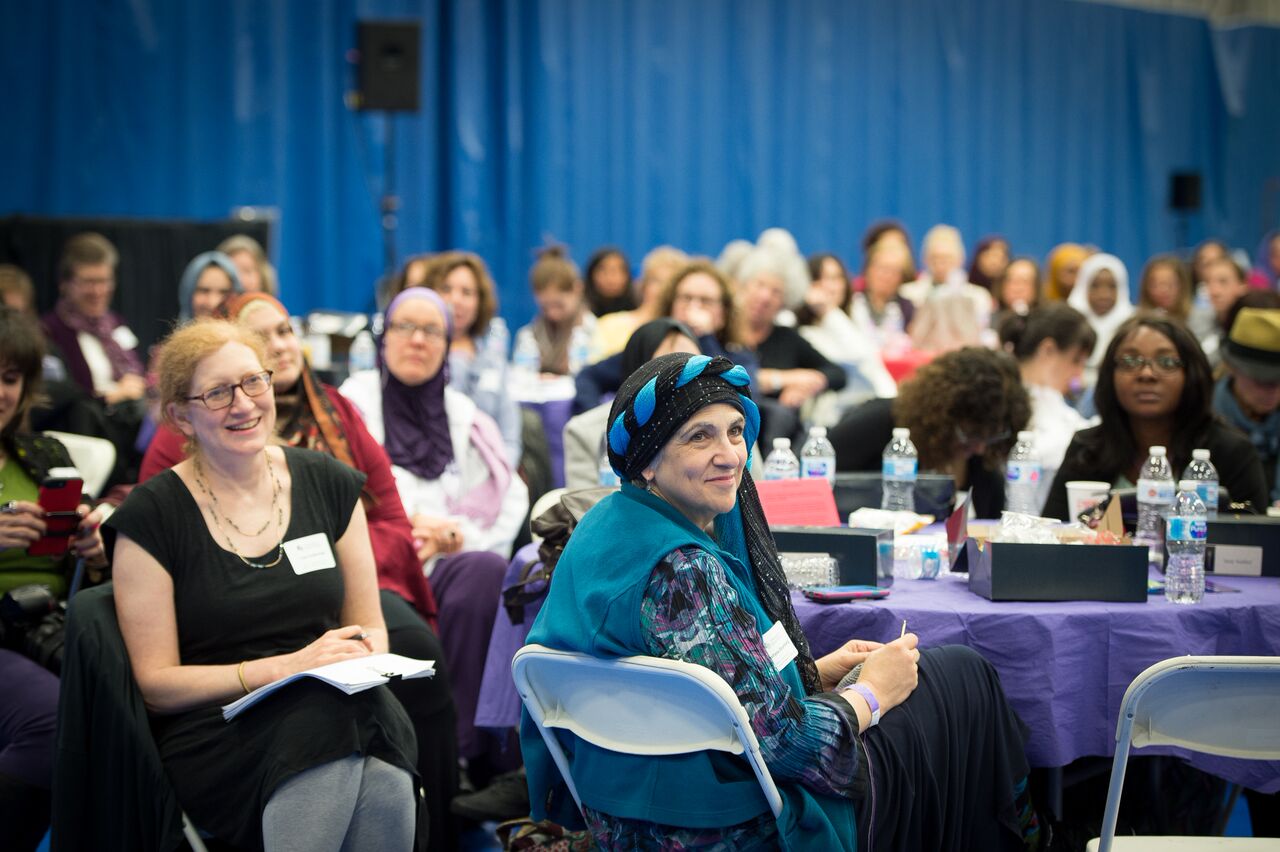
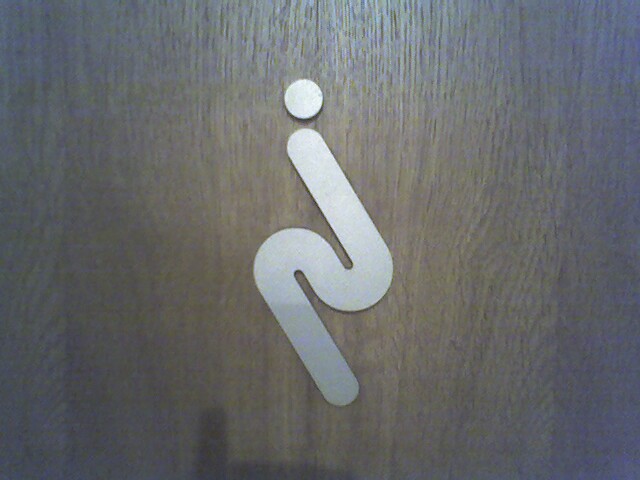
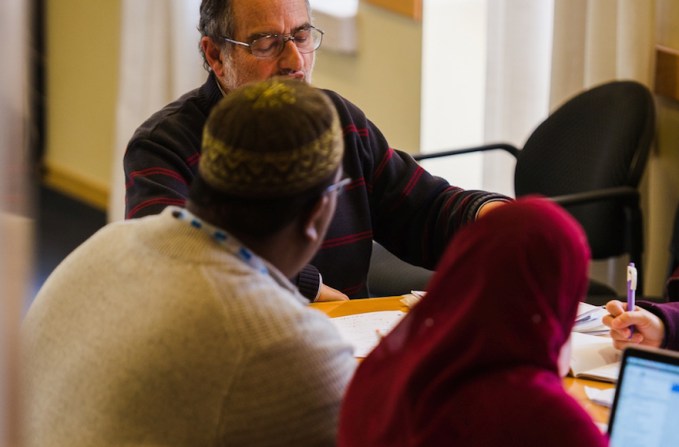
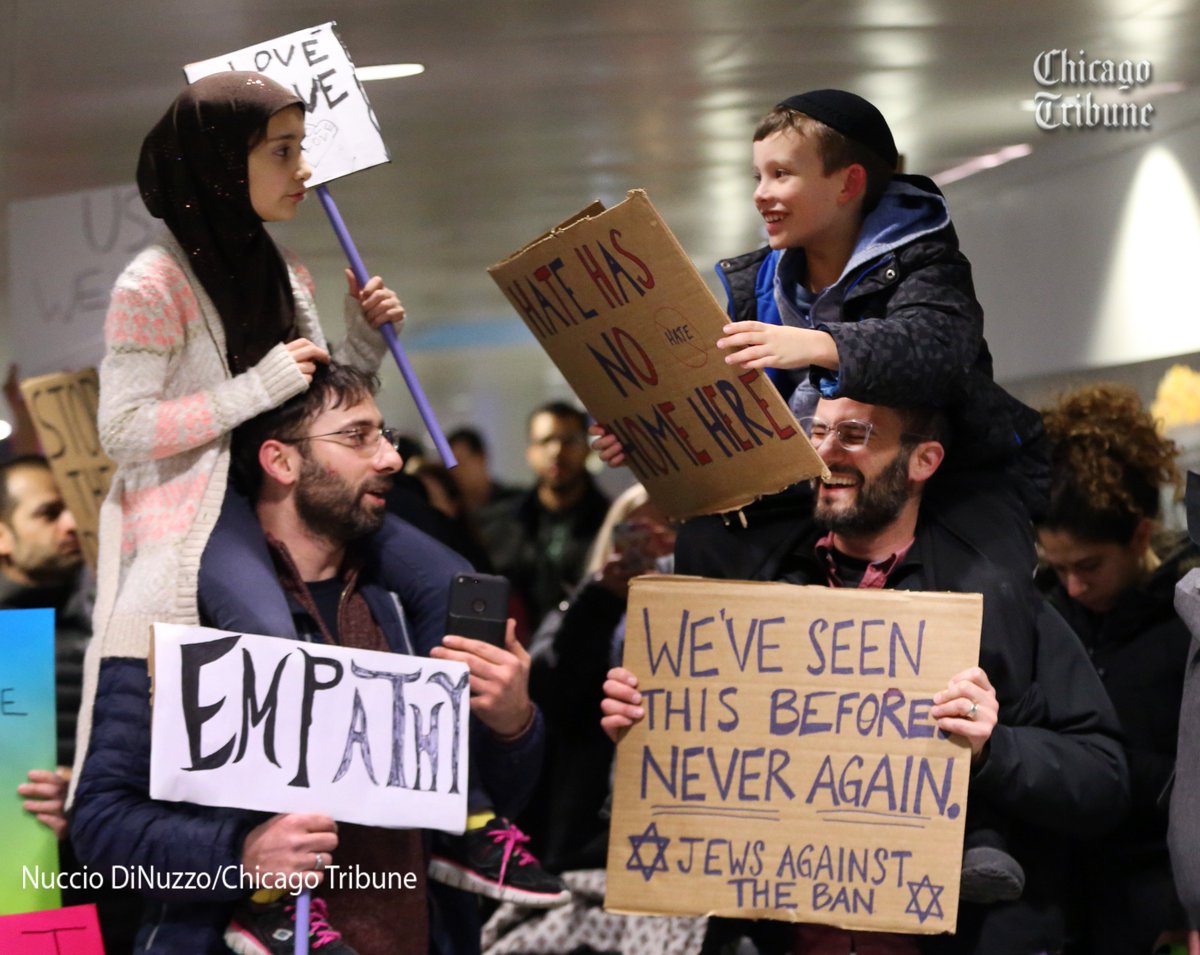
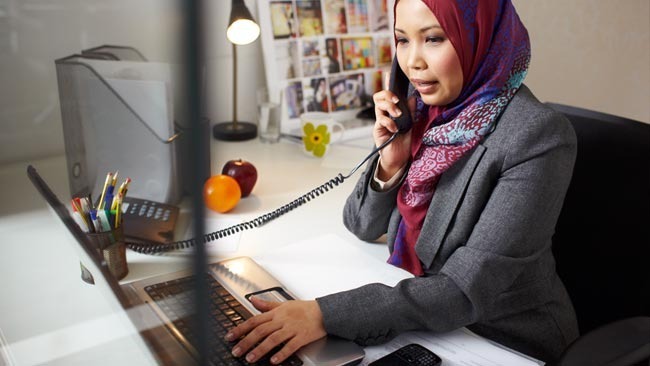
This is a good article on Women’s role in Islamic History: http://www.youngmuslimdigest.com/feature/11/2017/womens-role-islam-past/